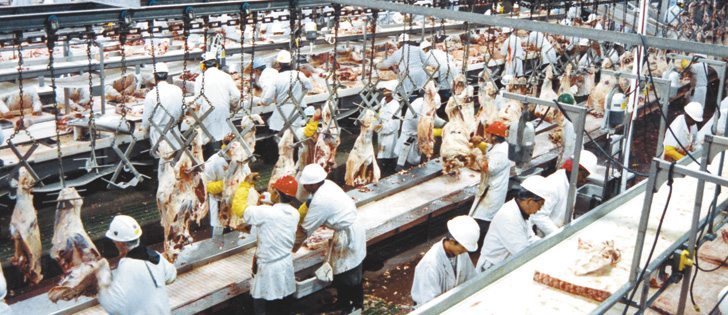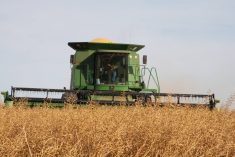QUEBEC CITY – Despite an elaborate system of government incentives and co-operative programs aimed at attracting young farmers, France continues to lose twice as many farmers each year as it attracts.
That is an improvement, Mickael Poillion, an official with France’s Young Farmers’ organization, told a farm succession conference Aug. 28.
“It is not acceptable but it is better,” he told the conference organized by the Canadian Farm Business Management Council. In the 1990s, three French farmers left the land for every new one starting.
Read Also

Crop quality looks good this year across Prairies
Crop quality looks real good this year, with the exception of durum.
The European Union and France have a dizzying array of subsidies and incentives aimed at helping young people enter the industry. They aim to help 6,000 of the 16,000 new entrants every year.
And they range from loans and professional counseling to a preference for new entrants when French farmland becomes available.
Meanwhile, the French co-operative system encourages young farmers to join and offers them programs aimed at making farming more attractive.
Machinery co-operatives reduce the need for young farmers to purchase expensive equipment and widespread land leasing often eliminates the need to invest in expensive land.
A national “replacement worker” service makes temporary help available to work on farms when the farmer must be away for conferences, training or vacation.
“This is a reality,” said Poillion. “We take vacations.”
There also is annual leave for time with family, depending on the number of children.
“In these circumstances, there are replacement workers services and young farmers get a priority,” he said.
According to the young farmer advocate who works on a farm north of Paris with his parents, it is the only way to attract young people to the business.
“A young farmer needs to feel welcome by the older generation and by society,” he said. “We need to keep reminding the government that you can’t have a successful farm policy without a plan for succession.”
Earlier, Edouard de Sainte Maresville, an official with France’s network of agricultural councils, outlined a variety of ways that French and European governments have responded.
Despite the fact that every year in France more than one million acres of farmland go out of production, he said there are many programs to help attract farmers.
There are low-interest loans, subsidies that increase depending on the difficulty of the area or terrain for farming and a register meant to match retiring farmers with young people hoping to get into the business.
Eligible applicants must have some training and offer a credible business plan. And beginning farmers are favoured not only in giving access to available farmland but also in obtaining available production quota.
Programs available
“There are many programs in place to help meet the goal of helping 6,000 new farmers enter every year,” he said.
Edgeley, Sask., farmer Franck Groeneweg, born in France and with three brother and parents still farming there, was not impressed.
He publicly challenged Maresville’s description of the helpfulness of government programs.
And in a later interview, he said the French and European system is so bureaucratic and weighted to existing farmers that it does not do as much good for young farmers as the business model suggests it should.
“It is very complex and a very convoluted system that does not work well,” he said. “It works better on paper than in practice. I would draw an analogy to the Canadian Wheat Board. I am not one who wants to see it disappear but I don’t see that it delivers the benefits that its theory and supporters say it should.”
Groeneweg seeded 10,000 acres of crop on his Green Atlantic Farms this year and harvest starts this week.














